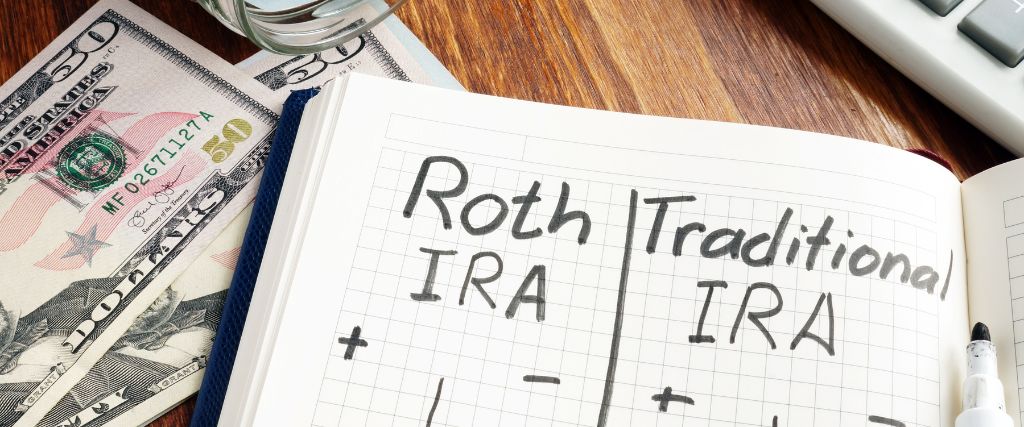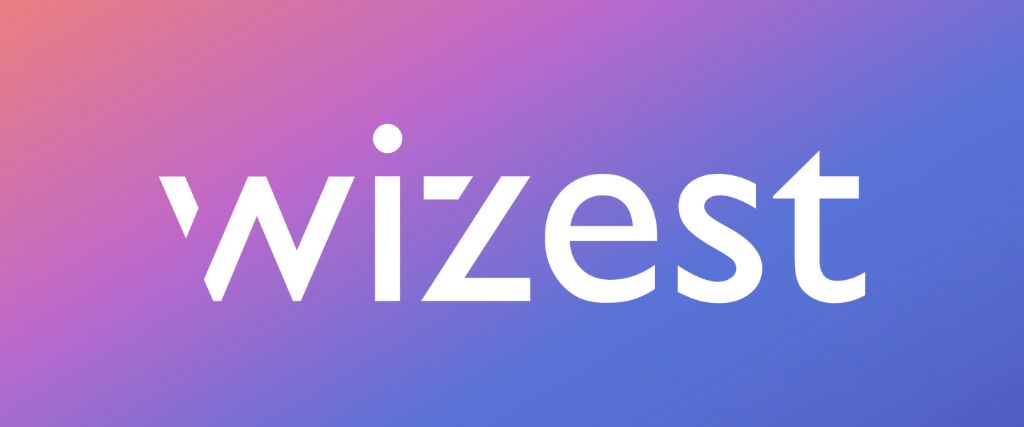401k vs IRAs: Choosing the Right Savings Option
Planning for your retirement is an important part of any financial journey. It’s noteworthy to take time as early as possible to prepare when you want to retire and what your financial needs will be based on that timeline. Once you’ve made your basic roadmap to retirement, you have many options for how you want to start saving toward your goal - two of the main ones being 401k vs IRAs. Putting aside money in a savings account is great, but there are more efficient ways to reach your goals faster before that money is considered taxable income by the IRS, including employer-sponsored retirement plans.
Two of the most popular retirement savings options are 401k plans and IRAs. These two types of accounts offer different advantages, so it's crucial to understand their differences before deciding which style best suits your particular situation. In this article, we will discuss the benefits and drawbacks of both 401k plans and IRAs to help you make a more informed decision about how best to save for your future and achieve your retirement plans. We'll also provide a comparison between these two account types so that you can better assess their respective merits.

Overview
One of the main advantages of both 401k and IRA accounts is the ability to set aside money for retirement without being taxed on those funds until retirement age. While both tax-free and tax-deferred savings options, many differences exist. First, let’s define each.
401k Plans
A 401k account is a retirement savings account that allows you to set aside pre-tax dollars for retirement. Contributions to this type of account are generally made through automatic payroll deductions, and employers may also offer matching contributions in some cases. The funds in a 401k plan grow on a tax-deferred basis, meaning that taxes are only paid when the funds are withdrawn during retirement - potentially providing additional returns that would otherwise be lost to taxation. Additionally, 401k plans have higher contribution limits than IRA accounts, making them a more attractive option for those who want to save more for their future.
Individual Retirement Accounts (IRAs)
An IRA account is a retirement savings vehicle that allows investors to save for the future and earn tax-deferred returns. Unlike 401k plans, IRA accounts do not have any employer-matching contributions and set lower annual contribution limits. However, they offer more flexibility regarding withdrawals before retirement age with fewer restrictions on early access to funds. Furthermore, all investments in an IRA account can benefit from tax-deferred growth - meaning that earnings are not subject to taxes until the funds are withdrawn at retirement age.
Roth IRAs
Unlike traditional IRAs, Roth IRAs do not offer any tax breaks on contributions. This means that money is taxed when placed in the account rather than when it is withdrawn. However, this also means that any earnings made within a Roth IRA account are not subject to taxes - making them an excellent option for those who think they may be in higher tax brackets by the time they reach retirement age.
Roth IRA accounts also come with higher annual contribution limits than a traditional IRA and more flexibility about withdrawing funds without incurring penalties or taxes. This makes them attractive for those looking for greater control over their retirement funds and who expect their incomes to increase over time. Furthermore, Roth IRAs also allow for contributions past the age of 70 ½ - further increasing their potential benefits compared to other retirement accounts.

Advantages of 401k Plans
The most significant advantage of a 401k plan is the potential for tax-deferred growth. Contributions to a 401k are made with pre-tax dollars, and any earnings on those contributions will grow without being taxed until you begin to withdraw funds in retirement. This can provide significantly higher returns over time than saving post-tax money in a traditional savings account.
Tax Benefits
The tax benefits of 401k plans are one of their main advantages. Contributions to your 401k plan are made with pre-tax dollars, meaning you will only have to pay taxes on those contributions once you withdraw the money in retirement. This means that your 401k savings will grow without being taxed until you retire. This can provide significantly higher returns over time than saving with post-tax money, like in a traditional savings account. Suppose you’re confident you can set money aside without accessing it until retirement. In that case, 401k plans are a great way to avoid unnecessary taxes on those funds.
However, it’s important to note that while there are no income tax liabilities when contributing to a 401k plan, you may be subject to certain taxes at the state level or about specific activities or investments within the strategy - such as taking out a loan against your account balance or investing in certain asset classes like collectibles. It is also essential to consider other potential taxes, such as capital gains and dividend taxes, when making any decisions relating to your 401k plan investments.

401k Employer Contributions
Another thing that sets 401k plans apart from other long-term savings options is employer contributions. Often, employers offer matching contributions to their employees' 401k plans, allowing employees to gain more from their contributions. These employer matches also come with the same tax benefits as regular contributions. It's free money!
The employer contributions can vary quite a bit. Still, the 2023 average is at an all-time high of 4.7% of your yearly salary. For example, if you make 100,000 a year, a 4.7% employer match would mean they would match any employee contributions up to $4,700 on top of your standard salary. Many employers also have a standardized dollar amount limit for all employees. This is a great way to save money and collect additional income while deferring taxation. This should be a no-brainer if you can set aside money for retirement up to your employer contribution limit.
Higher Returns + Better Options
The potential for higher returns with 401k plans is another fantastic advantage. Since contributions to your 401k plan are made with pre-tax dollars, any earnings on those contributions will grow without tax until you withdraw funds in retirement. This means that investors will have the potential to benefit from compound growth over a more extended period of time, as opposed to investing with post-tax money, where taxes must be paid upon every deposit or withdrawal.
Aside from their tax benefits, 401ks also offer a wide range of investment options that allow investors more flexibility when choosing how to allocate their funds, allowing them to tailor their investments around their individual goals and risk tolerance levels. By diversifying across different asset classes and sectors, investors can minimize risk while increasing their chances for higher returns. This gives investors more control over their assets and allows them to take a more active role in managing their retirement funds.
Overall, the potential for higher returns through tax deferral and employer matches makes 401k plans attractive for those looking to save and invest for retirement. However, it’s still important to consider all the associated risks before making any decisions about your investments - such as early withdrawal penalties and income taxes - so thoroughly research your options before committing any funds.
The Disadvantages of 401k Plans
It's important to note that while the tax-deferral benefits of 401k plans can lead to higher returns, certain risks are also associated with investing in this type of account. For example, suppose an investor withdraws funds from their 401k before retirement age. In that case, they may be subject to early withdrawal penalties or income taxes, which can significantly reduce the total amount received from the account.

Fees + Expenses
One of the main disadvantages of 401k plans is their high fees and expenses. These fees vary depending on the plan provider and can include administrative costs, management fees, fund-related expenses, and other costs associated with investing in a 401k plan. These fees can add up quickly and significantly reduce your investment return.
Limited Options
In addition to these high costs, 401k plans typically have relatively limited investment options compared to other retirement accounts, such as IRAs or brokerage accounts. This means that investors may only be able to invest in certain types of funds or securities within their plan - potentially limiting the diversification of their portfolio. Furthermore, many 401k plans charge additional fees for selecting investments outside of those offered by the plan itself - making it more expensive for investors who want to customize their portfolios.
Finally, many investors need to know they are responsible for managing their funds within a 401k plan. This means that not only do they need to understand how to choose appropriate investments, but they also must monitor those investments and make adjustments as needed to maintain an appropriate level of risk protection for their retirement savings.
Overall, there are several potential drawbacks to investing in a 401k plan - including its high costs and limited investment options - so it’s essential for investors to weigh these factors carefully before committing any money to this type of account. Additionally, suppose you choose to invest in a 401k plan. In that case, you must actively manage your funds to maximize your returns and protect your savings from market volatility - so make sure you’re adequately prepared before taking on this responsibility.
The Advantages of IRA Accounts
IRA accounts (Individual Retirement Accounts) are another excellent option for investors looking to save for retirement and get tax advantages. IRAs offer low costs, high flexibility, and the ability to invest in almost any type of asset. This makes them an attractive option for those who want to manage their retirement funds while taking on minimal risk effectively.
Affordability
One of the main advantages of IRA accounts is their affordability - with most IRA accounts charging no annual fees and only minimal setup costs. In addition, many brokers offer a variety of commission-free investments, allowing investors to maximize their returns without worrying about expensive trading fees. As such, these accounts can provide an ideal solution for those who want to invest without having to cover huge upfront costs or ongoing expenses.

Flexibility
IRA accounts also offer unparalleled flexibility regarding investment choices - with most providers offering access to stocks, bonds, mutual funds, ETFs, CDs, and other types of securities. This allows investors to create a diversified portfolio that suits their individual goals and risk preferences - enabling them to tailor their investments according to their unique financial situation.
Additionally, IRA accounts allow investors to choose from different account custodians - giving them greater control over how their funds are managed and invested. Additionally, investors can select traditional or Roth IRAs, allowing them to choose between making pre-tax contributions (traditional) or post-tax contributions (Roth). This provides greater flexibility regarding tax savings, allowing investors to choose between immediate tax savings (traditional) or potentially higher returns over time (Roth).
All in all, IRA accounts provide investors with numerous advantages that make them an attractive option for those looking for a low-cost and flexible way of saving for retirement. From access to a broad range of investment options and custodians to potential tax savings strategies - they offer a valuable solution for those seeking a secure retirement plan that meets their needs.
The Disadvantages of IRA Accounts
Contribution Limits
IRAs come with unique drawbacks to consider as well. One of the main disadvantages of using an IRA account is its contribution limits. Most IRA accounts have annual contribution limits significantly lower than those of 401k plans - meaning that these limits may constrain investors who want to save more for retirement. Additionally, some IRAs impose additional restrictions on contributions based on income thresholds - preventing high-income earners from fully utilizing the benefit of these accounts.
Withdrawal Penalties
Another downside of IRA accounts is the potential for withdrawal penalties before retirement age. Generally speaking, early withdrawals from an IRA account will incur steep penalties and taxes - reducing or eliminating any potential returns that the investor might have realized had they left their funds in the account until retirement age. This makes them a less attractive option for those needing access to funds before retirement, as hefty fees and taxes will likely offset any gains made.
Finally, IRA accounts also need features such as employer matching, commonly available with 401k plans - reducing their potential returns compared to other retirement savings accounts. This means that investors must rely solely on their contributions to build a sizable nest egg for their future, rather than taking advantage of employer contributions which can help to accelerate savings over time.
It’s essential for investors to carefully consider the advantages and disadvantages of using an IRA account before deciding whether it’s right for them. While these accounts can offer flexibility and low costs, they come with significant restrictions regarding contributions and withdrawals - making them a less attractive option for some investors compared to other retirement savings vehicles.
401k vs IRAs - A Comparison
Without a doubt, 401k plans and IRAs are two of the most popular options for building retirement savings. Both offer investors a way to save for their future while minimizing taxation on those savings. However, they differ regarding contributions, employer participation, withdrawal restrictions, and potential returns.
401k plans and IRA accounts offer investors different advantages. While 401k plans often provide higher contribution limits and the potential for employer plans with matching contributions, they also have more restrictions when withdrawing funds before retirement age. On the other hand, IRAs are typically more flexible in terms of contributions but have lower annual limits and potentially steep taxes and penalties on early withdrawals. Ultimately which option is best will depend upon your individual needs and financial situation - so do your research before deciding which type of account is right for you.

Our Solution
Once you’re ready to start creating a retirement plan (which should be sooner rather than later), you should consider both options! But that may not be enough, or maybe you want to be more involved in your investments. In that case, investing in the stock market is another excellent way to build a retirement account, especially if you’ve already reached your contribution limit or employee match amount.
If you’re new to investing, you’ll probably need financial expertise to help you, especially if you want to build a diverse and rewarding portfolio. If you ask a bank for advice, they will ask for an initial investment in the six figures. At the same time, most investing apps don’t offer any guidance.
That’s where Wizest comes in. We created an investing solution to democratize the stock market and remove some barriers to entry that discourage novice investors. We understand the stock market can be intimidating and overwhelming and that most people’s lives are too busy to spend hours analyzing the market and making thoughtful investments.
Wizest lets you pick people instead of stocks. You can build your team of financial experts by browsing their Expert Profiles and Portfolios like you would on a social media platform. Building your team takes just minutes, replicating the portfolios of Experts with one click after you check out their profiles. It’s like fantasy football for investing, and you can shuffle your team of Experts anytime!
Our platform was designed to make investing simple for new investors, diversification easier for veteran investors, and the financial journey engaging and fun for everyone, regardless of experience level. Our simple subscription model makes it affordable for everyone (the cost of 1 coffee a week), no matter the size of your account, with no hidden fees.
Start investing today to take advantage of our special launch pricing!
A Beginner's Guide to Futures Trading: Strategies ...
2023-06-22
Futures trading gives investors access to various markets with just one contract instead of multiple...
Read moreMastering the Basics: Essential Investing Concepts...
2023-08-29
For young people, carving a secure financial future is daunting, especially when faced with economic...
Read moreThe Power of Socially Responsible Investing...
2023-09-01
Socially Responsible Investing is a strategy that prioritizes not only the potential for financial r...
Read more


